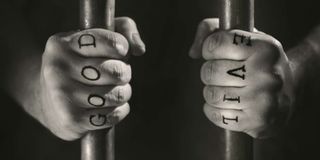Premium
The formation of upright conscience

Conscience is a judgement about good or evil.
What you need to know:
- You make that judgement when you have to decide whether to act or not.
- If I decide to steal some money, my conscience tells me whether I am doing good or evil.
- It’s not a judgement about moral principles. Conscience is my judgement about my particular act.
A few years ago, a man who now calls himself Joseph wrote a book about finding Christ and salvation. Everyone in his family was convinced he was damned to hell for abandoning the religion his parents gave him. Joseph’s conversion is an example of what it means to form your conscience.
Conscience is a judgement about good or evil. You make that judgement when you have to decide whether to act or not. If I decide to steal some money, my conscience tells me whether I am doing good or evil. It’s not a judgement about moral principles. Conscience is my judgement about my particular act.
Why do we have to form our conscience? In St Matthew’s gospel, we hear Jesus explaining the way our conscience can be twisted (6:22): “The lamp of the body is the eye. If your eye is clear, your whole body will be filled with light. But if your eye is diseased, your whole body will be darkness.”
If your conscience is working properly, you will make proper judgements. For instance, if you steal, your conscience will say you did something evil. If your conscience has been twisted—perhaps because of the way you were taught as a child—the conscience will say it was good. This second case is the one Jesus referred to: “But if your eye is diseased, your whole body will be darkness.”
If your conscience is twisted, you will think an evil deed is a good deed. The opposite can also happen. You will think that a good deed is evil.




